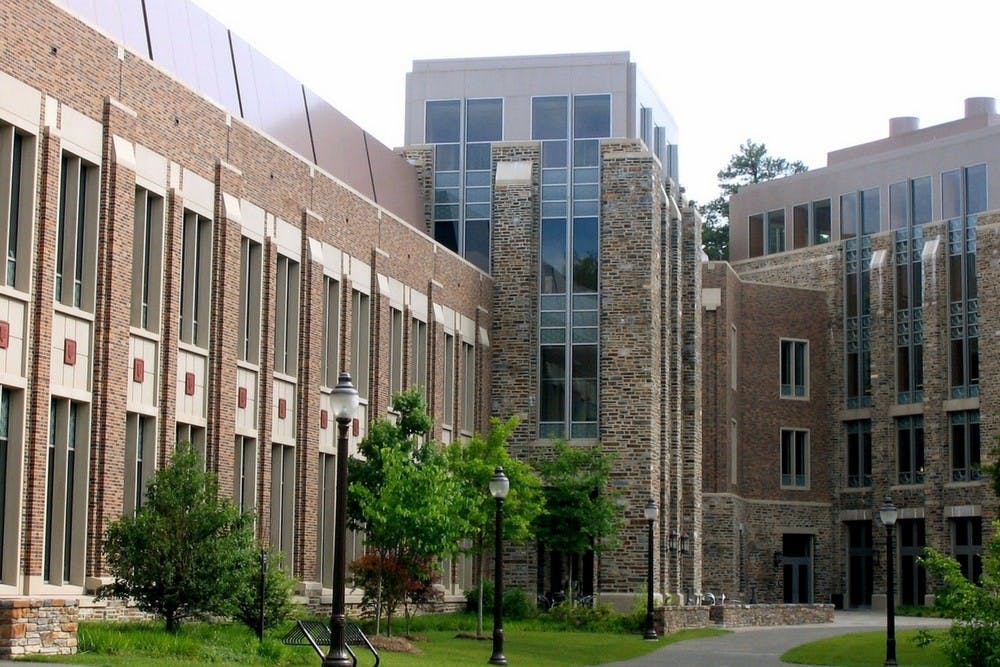As a Fall teaching assistant in EGR101, the new required engineering class for all first-years, the biggest question students asked me wasn’t about the materials, it was about what to take next semester. After all, spring of first year is the first chance for those interested in engineering to take a specialized course, like molecular biology or engineering innovation. For some, it’s a question of which engineering track to pursue. A seemingly endless number of introductory and fundamental classes to get through, plus a constrained schedule always leads to concerns from the first-years. With their limited knowledge of the various engineering disciplines, it’s always “I don’t know much about electrical and computer engineering/biomedical engineering/mechanical engineering, I don’t want to pick the wrong one,” or, “Do I even want to be an engineer?”
I always laugh a little bit, try to sell them on electrical and computer engineering, and recommend they try out ECE110 in the Spring semester. Then, they ask about my engineering experience.
I am majoring in Biomedical and electrical and computer engineering (BME/ECE). I’ll admit, I came to Duke because of its biomedical engineering major, and when I started three and a half years ago, I was so sure that’s what I wanted to do. I had high hopes coming into Duke and saw a few ways that my future could pan out: 1) help cure cancer, or 2) develop a bionic eye, or 3) develop some revolutionary technology for low- and middle-income countries, or 4) 3D print human tissues.
Seven semesters later, I’m almost done with my engineering majors, no longer interested in doing any of those things above, and unsure if I made the right decision.
This Fall, when recruiting season came around, I was hesitant about being an engineer altogether. Instead of talking to engineering firms at TechConnect and the career fair, I started putting together law school applications for patent law, until I changed my mind and signed a full-time job offer that was not engineering-related at all. Now, as I grind through the rest of my engineering classes, slowly inching towards the completion of two engineering degrees that I won’t be using upon graduation, I wonder: did I make the right decision three years ago? Am I even making the right decision now?
Upon looking at the Duke BME website’s official statistics for where students go after graduation for 2018, it seems that I’m not alone. Of the areas of employment, “healthcare & medicine” occupy the largest percentage (27.3 percent) followed by “biotech, pharmaceuticals, medical equipment” (18.2 percent) and “engineering, architecture, design” with 15.9 percent. But added up, it means that only 61.4 percent of the BME majors stay in engineering or the biomedical field. What happened to the rest of them, the 38.6 percent? With 9.1 percent going into consulting, and 6.8 percent going into finance, and 13.8 percent going into “Other.” Why didn’t these students stay in engineering?
Engineering Student Government President and senior Tracy Lu’s comment in a previous Chronicle article may help explain the statistics. “Historically, Pratt has had a heavy focus on consulting, finance, and software in post-graduation career paths,” Lu said, “but the curriculum is slowly shifting towards training people to be actual engineers.” I am glad that Duke is trying to make engineering classes more practical. I wish that my engineering education had allowed me to take advantage of the new changes being implemented, and maybe if I had, I would be an actual engineer too.
Had I enrolled at Duke for BME in 2019 rather than 2015, would I be staying in engineering? How would my college experience have differed if I had just decided to pursue a completely different major? Was it worth doing all these years of engineering, to ultimately go into something non-engineering related? I remember my first year, Dean Sue gave advice to students on what to major on. It was something along the lines of “major in what you’re interested in, it doesn’t really matter for what you want to do after graduation unless it’s in engineering.” Well, I majored in engineering, but somehow that’s not what I’m planning on doing after graduation, and I think I finally know why.
I remember after taking ECE110 for my BME major requirement, I developed an interest in ECE. I loved working with my hands to build a robot that could follow a line and move up a ramp, and coding the logic behind it. I picked up ECE as a second major and did an internship in the ECE field. I’ve spent these years accumulating knowledge about biology, circuits, and semiconductors, and while I wouldn’t say I wasted my time, it’s pretty much all that I’ve done. Somewhere in the process of keeping up with the deluge of knowledge that Pratt dumps on us, I missed out on learning about other things. I’ve come to realize that there is so much out there beyond engineering, and wish I had gotten to explore other areas. Engineering also lost its luster; I kept taking classes that were interesting but was frustrated by the lack of any practical component.
With that in mind, I decided that it was finally time to depart from engineering and find something else where I can continue to learn and problem solve. I’ve finally got my chance to do so, and I’m taking the opportunity to do something else that interests me. It seems that Dean Sue was right: in the end, it didn’t matter what my major was.
Martin Li is a Pratt senior. His column runs on alternate Tuesdays.
Get The Chronicle straight to your inbox
Signup for our weekly newsletter. Cancel at any time.

